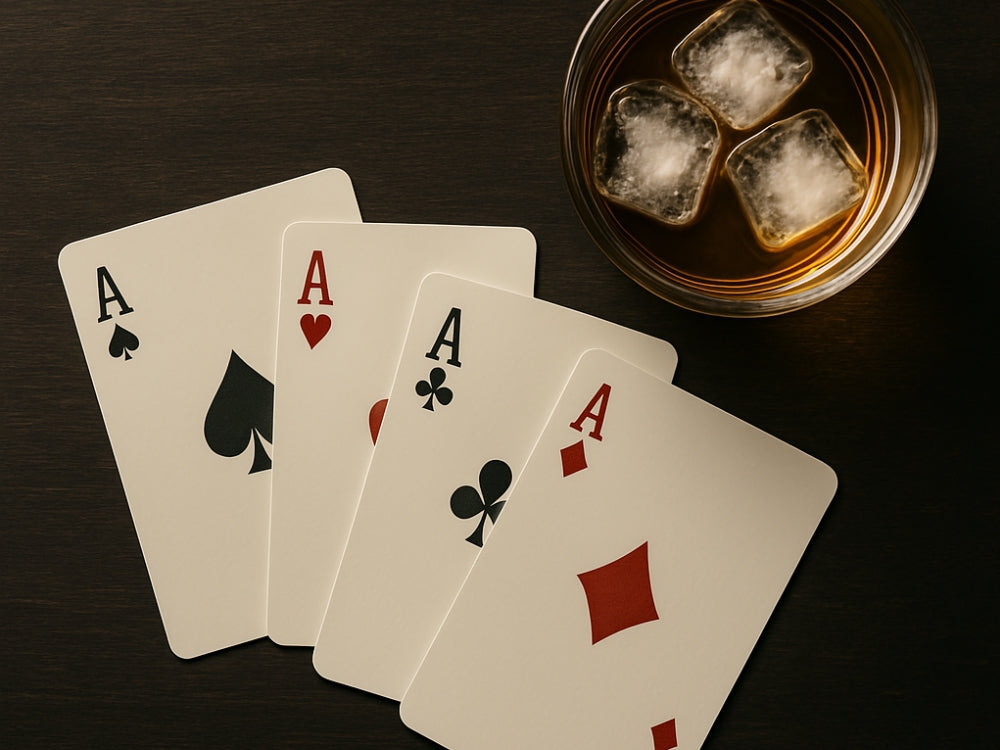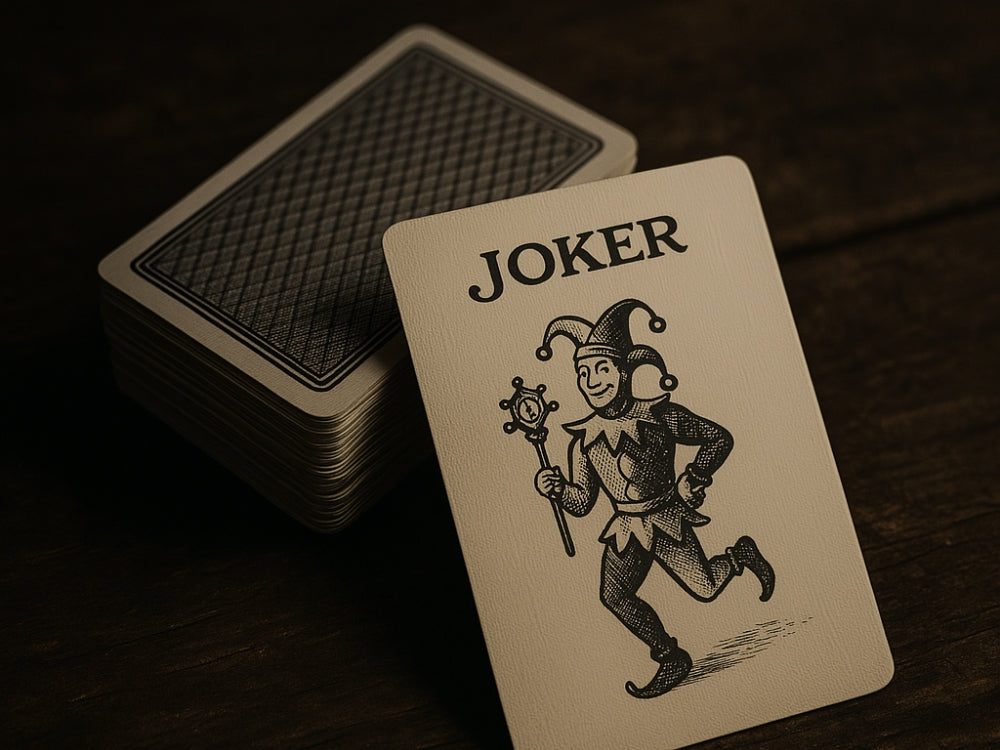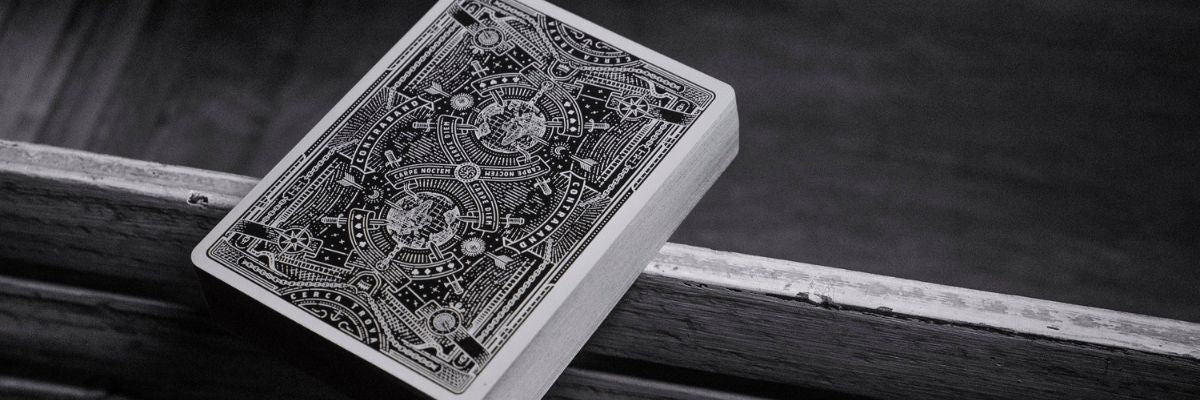Ever noticed how a deck of cards just has a certain... presence? Tucked in a drawer, stacked on a shelf, or being shuffled before a game, it always feels like there’s a story waiting to unfold. The British story of playing cards is full of twists and turns – stretching from the royal courts of the 15th century to pub tables, living rooms, and everything in between.
Playing cards likely reached the British Isles in the 15th century, slipping in from Europe like a well-travelled guest. France, and more specifically Rouen, gets much of the credit – with its bustling card-making industry and strong trade links with England, it was the most probable route in. The first real paperwork on record comes from 1463, when Edward IV issued a ban on foreign imports of cards, trying to give local makers a fighting chance. That little snippet already tells you cards weren’t some passing novelty; they were in demand. And as British card games began to emerge and evolve, so too did a uniquely homegrown tradition.
Early decks followed the French suit system (hearts, clubs, diamonds, and spades), but the names didn’t always stick exactly as expected. Instead of using the French terms, British decks adopted slightly different ones, like "spades" from the Italian "spade" and "clubs" from the Spanish "bastos." A nice little reminder that playing card evolution in Britain wasn’t just a case of importing and copying, but adapting and shaping things into something of its own.
At first, cards were the toys of the elite. Hand-painted, costly, and occasionally turning up as miniature portrait canvases, they graced the tables of kings and queens. Elizabeth of York played. So did Henry VII, though apparently not very well…he racked up debts from time to time. One 16th-century game, Primero, was a favourite of Henry VIII, while the later King James I declared the Scottish card game Maw the official game of his court.
But cards didn’t stay exclusive for long. By the 17th and 18th centuries, they were turning up everywhere: in pubs, coffee houses, and living rooms. This is where the British card games we know and love started to take root. Cribbage, created by the poet Sir John Suckling (who may have been better at cards than poems), has been a pub staple ever since. Brag, the great-grandparent of Poker, introduced the idea of wild cards. Whist became a social institution – formal enough for clubs, casual enough for home, and eventually the jumping-off point for Bridge.
The design side of things evolved too. Those early imported designs from Rouen became the basis for what’s now called the "English pattern" – the one you probably picture when you think of a traditional deck. A full set of English-made cards from around 1590 even mapped the counties of England and Wales (a bit niche, but you’ve got to admire the dedication). In 1628, card makers got their own guild: the Worshipful Company of Makers of Playing Cards. Not a bad claim to fame.
The manufacturing side saw some brilliant innovations too. Thomas De La Rue (a name that still rings a bell in the printing world) introduced letterpress techniques in 1832, making cards more durable and more widely available. Charles Goodall & Sons gave us double-headed court cards in the 1860s (so you no longer had to flip your king upside-down to see his face). Corner indices followed not long after. But perhaps the most iconic quirk in British cards was the Ace of Spades. For centuries, this ace card bore an elaborate stamp showing tax had been paid on the deck – a legal requirement from 1712 until 1960. One poor card-maker was even executed for forging it. No pressure.
Over time, games came and went in waves. Whist ruled the 18th century, then Bridge took the baton. Patience (or Solitaire) became a solo obsession in Victorian parlours. During World War I, soldiers played Pontoon in the trenches. And today you’ll find everything from Snap and Go Fish to Texas Hold'em and Old Maid. Whether it’s a quiet evening game with Rummy and music in the background, or total chaos playing Spoons around a kitchen table (don’t underestimate how competitive that gets), the tradition lives on.
Along the way, cards picked up baggage – the good kind. Superstitions, slang, and stories. The Nine of Diamonds is known as the “Curse of Scotland,” though no one can quite agree why. Some say cutting the cards brings luck. Others swear by certain rituals when shuffling. And then there’s the language. We talk about playing our cards right, holding all the cards, laying them on the table, it's become part of how we speak, not just how we play.
What’s lovely is how these old traditions now sit side-by-side with a fresh wave of design and storytelling. These days, premium playing cards are an art form in their own right. The Harry Potter playing cards are packed with hidden symbols and a bit of wizarding flair. The James Bond playing cards bring a sleekness worthy of the man himself. If you’re more into the galaxy far, far away, the Star Wars playing cards are full of little design moments to geek out over. You can see and feel the difference in quality with luxury playing cards; the finish, the weight, the detail. It turns a simple deck into something you actually want to use, collect, or gift. Honestly, the best quality playing cards just make the whole experience more enjoyable.
If you’re curious about where cards came from before they reached Britain, there’s a whole other tale to explore. Have a read about the History of Playing Cards to dive into their wider global journey.
As for how cards developed in Britain, it’s hard not to admire just how seamlessly they’ve embedded themselves into our cultural DNA. They’ve been taxed, banned, celebrated, redesigned, and repurposed. But through all of it, they’ve remained a reliable companion, whether you’re passing time, connecting with friends, or trying to bluff your way through a hand of Brag.
The British story of playing cards is far from over. And if this little window into their past has sparked a bit of curiosity, well, you might just find yourself picking up a pack. Just don’t let anyone talk you into Spoons unless you’re ready for battle.




